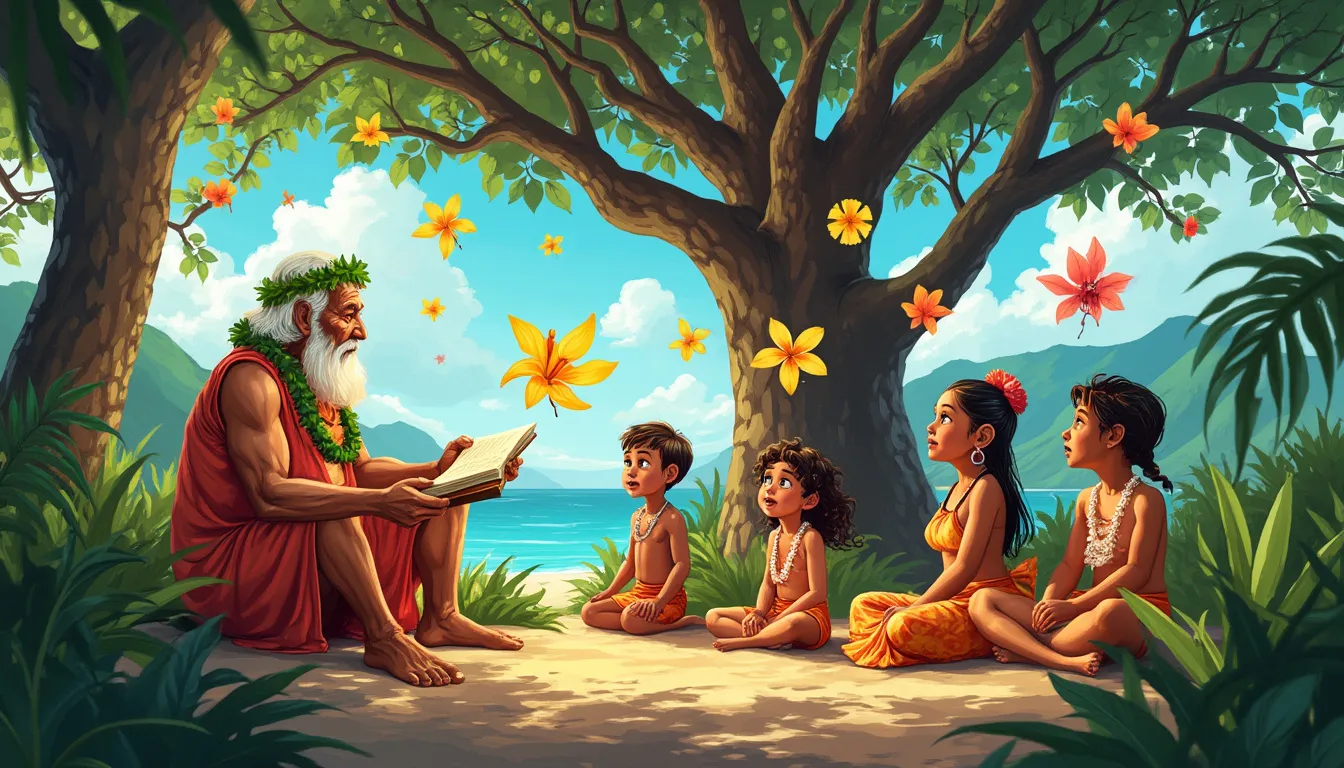In the vibrant tapestry of Hawaiian language and culture, every word carries a weight of history and significance, weaving stories of the past into the fabric of the present. Kiki is one such term that embodies the richness and depth of Hawaiian tradition. To truly appreciate its meaning, one must delve into both its linguistic roots and its cultural connotations. The query What Does Kiki Mean in Hawaiian opens a fascinating exploration into a world where language is not just for communication but a vessel for cultural identity and community bonds.
At its core, the Hawaiian word Kiki reflects a multitude of interpretations, each nuanced by the context in which it is used. Its origins within the Hawaiian language unravel a tapestry of meanings that touch upon familial roles, societal structures, and the interwoven relationships that shape Hawaiian life. Beyond mere definition, Kiki anchors itself deeply within the customs and traditions of Hawaii, where it plays a pivotal role in family gatherings, cultural ceremonies, and communal interactions. Its usage in traditional songs and storytelling further underscores its integral role in preserving Hawaiian heritage and transmitting values across generations.
The journey of Kiki does not stop at tradition; it extends into modern usage, evolving with the dynamic shifts of Hawaiian society while retaining its cultural essence. In contemporary Hawaii, Kiki continues to influence the language, resonating in popular culture and everyday vernacular. This evolution of meaning signifies both a respect for tradition and an embrace of modernity, illustrating how language adapts while maintaining its cultural roots. Thus, understanding What Does Kiki Mean in Hawaiian is not just an inquiry into a word, but a gateway to appreciating the enduring and evolving spirit of Hawaiian culture.
In the quest to understand the significance of words within any language, one must delve into both the linguistic and cultural facets that shape their meanings. The Hawaiian language, known for its melodic and profound expressions, adeptly encapsulates the richness of the islands’ heritage and shared history. A term that has piqued the curiosity of many is Kiki. To truly grasp the essence of Kiki within the Hawaiian context, we must explore its origins, nuanced meanings, and cultural interpretations.
Exploring the Origin of the Word Kiki
The Hawaiian language, with its Polynesian roots, is characterized by a relatively small number of letters and symbolic terms that carry substantial weight in meaning and cultural significance. Etymologically, Kiki is a term that stands out due to its simplicity yet layered interpretations in the daily lives of Hawaiians. The word Kiki does not have a singular origin story; rather, it is a composite connotation within the Hawaiian lexicon that embodies both tangible and intangible elements of life and nature around the islands.
Linguistically, Kiki can be seen as a compact expression symbolizing something small or a diminutive form, akin to the English interpretation of little or child. This foundational meaning is further expanded in communal and familial contexts where its application is prevalent. These primary interpretations serve as gateways into understanding its deeper cultural resonance across various social settings in Hawaii.
Cultural and Social Contexts: The Multifaceted Interpretation of Kiki
In Hawaiian culture, words often transcend their literal definitions to embody broader implications that reflect societal values, customs, and interconnectedness among people and the land. Kiki is no exception to this phenomenon. One of the most common contexts in which Kiki is referenced is within the family structure. Here, Kiki is often used affectionately to refer to children or youngsters, an acknowledgment of the innocence and promise that the younger generation represents.
Familial relationships in Hawaiian culture are nurtured by deep respect, aloha (love), and recognition of the intergenerational bonds that maintain the `ohana (family). By referring to children as Kiki, there is an inherent understanding of their role as both recipients of cultural knowledge and future custodians of Hawaiian traditions. The term, therefore, is not simply a label but a testament to the vitality and potential seen within Hawai’i’s youth.
Beyond familial ties, Kiki finds its place in broader community contexts. It may be utilized in community gatherings, educational settings, and ceremonial practices, each time amplifying the community-oriented perspective that is intrinsic to Hawaiian culture. The social fabric of Hawaii is deeply interwoven with collective wisdom and participation, and thus, Kiki also denotes the beginning stages of participation and contribution to societal harmony.
Further, in many Hawaiian circles, the word Kiki can take on more specialized meanings depending on specific customs or traditions. Its association with ‘youthfulness’ can be metaphorically extended to signify new beginnings or the embrace of an untarnished outlook towards change and adaptation, particularly in cultural events or educational initiatives.
The significance of Kiki is accentuated by the community’s adaptability and the fluid nature of cultural language use in Hawaii. As a word it illustrates the heart of Hawaiian perspectives on rearing future generations and maintaining unbroken lines of culture and heritage, a mentality that imbues Kiki with a profound sense of purpose within both language and community.
Understanding what does Kiki mean in Hawaiian is thus a journey that requires not only linguistic insight but a fuller appreciation of the rich tapestry of Hawaiian social, communal, and spiritual values that the term represents. Each utterance of Kiki is more than a simple word; it is a message filled with love, hope, and the collective spirit of a vibrant culture steadfast in its embrace of past, present, and future generations.
As we continue to explore the association of Kiki with various spheres of Hawaiian life, it becomes clear that its significance cannot be understated. Whether as a mention of a child breezily running across the sands of Waikiki or as part of a cultural anthem sung in celebration of `ohana, Kiki remains a cherished symbol of continuity and connection in Hawaii.

In delving into the role of Kiki within traditional Hawaiian customs, songs, and storytelling, it becomes evident that this term carries substantial cultural weight. Hawaiian traditions are rich with chants and oral narratives, often encapsulated in the language that conveys deeper meanings. In this context, understanding what does Kiki mean in Hawaiian offers a glimpse into the intricacies of these time-honored practices.
Traditionally, Kiki can be seen within the framework of Hawaiian chants known as oli, and songs, or mele, where each word is meticulously chosen for its resonance and meaning. The inclusion of Kiki in these artistic forms isn’t arbitrary but serves to enhance the narrative by imparting a specific mood or spiritual significance. For instance, within a chant, Kiki might represent a concept related to youth, innocence, or even a metaphor for a natural phenomenon. This usage underscores the term’s adaptability and its ability to convey complex emotions and ideas.
Furthermore, in the realm of storytelling, Kiki plays a pivotal role, often symbolizing characters or themes central to a narrative’s moral or lesson. Hawaiian stories, passed down through generations, frequently embed the term Kiki in ways that reflect communal values or the relationship between humans and nature. Its presence in storytelling not only serves to entertain but also to educate and instill cultural knowledge and ethical teachings. These stories are typically shared during family gatherings or communal events, underscoring the word’s connection to community and family life.
Moving beyond traditional contexts, the contemporary use and meaning of Kiki have undergone significant evolution. In modern Hawaiian society, language, like culture, is dynamic, responding to influences such as globalization, tourism, and digital interactions. The question of what does Kiki mean in Hawaiian now includes an examination of its role within the framework of modern vernacular and popular culture.
Today, Kiki is often integrated into everyday speech among Hawaiian speakers, sometimes taking on new meanings with a playful or colloquial twist. It may be used to refer to younger individuals affectionately among family and friends, thereby preserving its traditional connotations of youthfulness and playfulness while adapting to the norms of contemporary communication. Popular culture has further reinforced and expanded the usage of Kiki, with the rise of social media platforms and entertainment mediums where Hawaiian language and expressions find new audiences worldwide.
The presence of Kiki in modern Hawaiian music and media illustrates its adaptability and enduring charm. Artists and creators utilize the term in lyrics, branding, and dialogue, bridging the old and the new by bringing traditional Hawaiian elements to modern, global audiences. This blend of tradition and modernity highlights the resilience and fluidity of Hawaiian language and culture, demonstrating how ancestral knowledge can coexist with modern influences.
The transformation and adaptability of the word Kiki reflect broader themes in Hawaiian culture—those of preservation, evolution, and the balance between honoring the past and embracing the future. By tracking how Kiki has transcended its traditional boundaries to fit within the ever-expanding modern lexicon, we gain insight into the broader linguistic and cultural shifts occurring within Hawaiian society.
In conclusion, the role of Kiki within both traditional and modern contexts showcases its enduring presence and significance. Understanding what does Kiki mean in Hawaiian not only provides insight into Hawaiian traditions but also illuminates how these traditions continue to thrive and adapt in the modern world, ensuring that the cultural heritage remains vibrant and relevant.
In conclusion, the exploration of the term Kiki within the Hawaiian language and culture reveals a tapestry of meanings that extend beyond simple translation. Initially rooted in the charm and expressiveness of the Hawaiian language, Kiki demonstrates a dynamic range of interpretations that resonate throughout familial and community contexts. As a word imbued with cultural significance, it is emblematic of Hawaiian traditions where it features prominently in customs, songs, and storytelling, serving as a bridge connecting past traditions with present practices.
The evolution of Kiki in contemporary Hawaiian society underscores its adaptability and enduring relevance. In modern usage, it is incorporated into everyday language, reflecting shifting cultural landscapes and the integration of diverse influences. Moreover, Kiki has found a place in popular culture, symbolizing the fluidity and innovation inherent in Hawaiian linguistic expression. Through its continuous use and transformation, Kiki retains its cultural essence, providing insights into Hawaiian identity and the enduring legacy of its language traditions.
Ultimately, the study of Kiki highlights the rich, multi-faceted nature of Hawaiian culture, illustrating the profound ways in which language, tradition, and modernity converge to reflect the vibrancy and resilience of the Hawaiian community. Understanding What Does Kiki Mean in Hawaiian is not merely an inquiry into language but an appreciation of the values and history that shape this Pacific Island culture, offering a glimpse into the harmonious blend of past and present that defines life in Hawaii.







